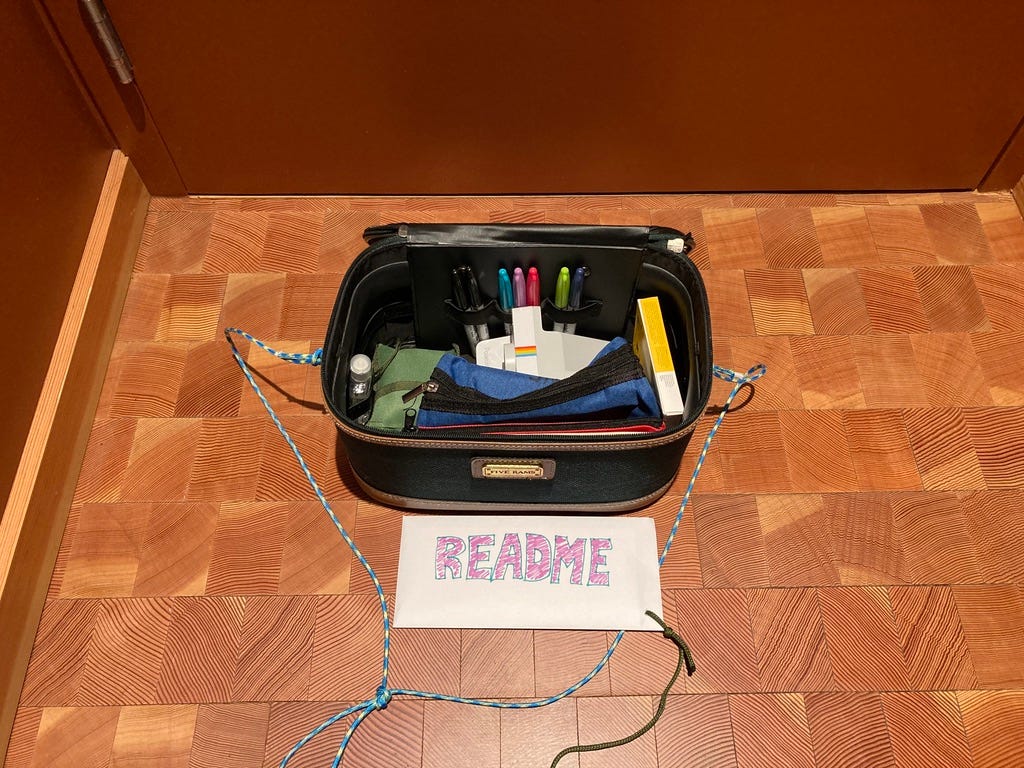Seeing a newly formed group of R&D managers fully immersed in the final step of making blackberry gelato together, I quietly snuck out the back of the cooking studio leaving them with nothing but a bag of instructions for the citywide scavenger hunt that was about to ensue.
This scene – equal parts true and bizarre – was from one of the many team gathering experiences I unfurled in my time working for Shopify. I can see your eye rolls: of course, some tech company gives its employees a day off work to make ice cream, when I’m slaving away behind a typewriter or swinging an hammer doing real work.
There’s some truth to the caricature. Over the past two decades the tech industry has provided remarkable luxuries to its employees – which at some points are completely excessive, or more accurately, purposeless. But I’d still say this misses the point.
To be clear, I don’t think the general tech mentality usually gets the point either. The techno optimists that typically run these companies hold beliefs about humans being more robot-like than we are. At some level these people believe that human behaviour can be altered more or less as simply as rewriting the firmware for your Roomba vacuum, turning it into a new machine that behaves in entirely new ways.
Sadly, my experience has shown me there are some pretty simple levers that can be pulled to get humans to behave in ways that they certainly wouldn’t otherwise. But in the long run, some things remain the same. We’re tribal creatures, and we form tribes [approximately] with the people we’re most frequently in contact with. (Sorry, dangling preposition.)
Even before COVID left our society with its most dangerous symptom – social distance – there was important work to do in bringing groups of people together so they could really work together.
2001: Space Odyssey begins with a bunch of chimps scrounging around in the dirt. Primitive creatures looking for berries or meat-scraps or something, with millennia flashing by and nothing much changing. We see the chimps battling each other, and a crucial moment occurs when one chimp discovers he can use a bone as a weapon, suddenly making himself far more powerful and winning access to all sorts of berries and meat-scraps. He tosses the bone in the air, an eon of progress whips by, and suddenly humans are in outer space.
What’s the lesson here? That bones make good tools to bludgeon enemies with? (Sorry, another dangling preposition.) No. The key moment occurs when the chimp – who spends all his time focused on finding treasures in the dirt which he can immediately enjoy, realizes he can divert his path from what’s immediately useful, go to a pile of trash, and pick something up that’s going to unlock a whole new level of opportunity.
This chimp is the first creature to pass the marshmallow test, and eventually it leads the species to Jupiter & Beyond the Infinite.
Stay with me – this is connected to the techno optimists and the gelato.
The moment this chimp reaches for trash, he’s doing something with no immediate benefit. He’s the species’ first investor.
Fast forward to the scene in the cooking studio I described above, with a cohort of new managers who’d been left in my care for fifty hours, and a suite of imaginative activities like preparing a meal together, riding a ferris wheel with an unmarked envelope, and asking broad questions of strangers on the street. What executive would authorize such a frenzy?
It turns out, some executives with a rare ability to not just see the importance, but actually prioritize a group coming together to do better work. A decision maker who could see the value in a bone that didn’t appear to have any edible meat-scraps on it.
In the race to get shit done, we constantly find ourselves as those chimps searching for the straightest possible line to the task we need to complete, and when that’s done … we race to complete the next. At least in my anecdotal career experience, we get locked into doing nothing other than what’s urgent.
And do you know what most people will agree is important and never urgent? Forming a strong working foundation for a group so they can run circles around others when they get back to their desks. And they really can. The engagement, the eagerness, the enrolment of a team that trusts each other is unfathomably effective, and I’d say it probably outperforms a more competent or experienced group with a lower level of trust.
Gartner recently published a report stating that the value of leadership development training isn’t in the content of the programs, but in the fact that it brings people together and allows them to form trusting bonds with one another.
But this is always the challenge. We know there’s work to be done, we can see it right in front of us. “Team building” seems like bullshit. “Culture” is pretty fluffy. People with MBAs are running companies and their MBA training teaches them to look for quantifiable results. I’ve been doing this work for a decade and I’ll openly admit that it’s damn near impossible to quantify the impact of forming a high-functioning group.
I’ve written about the work I did running onboarding at Shopify, with a messy pile of furniture that greeted new hires on their first morning of work. Was it about sorting out a pile of furniture? Of course not. It was about a brand new group of strangers cooperating and communicating with each other. Being together with a focus, and accelerating their trust.
We like having problems to solve. It gives us something to occupy our anxious energy. But what we really need are others to deepen bonds with.
The scavenger hunt, or taking over a vintage recording studio in Toronto, or rafting in Washington … these are all memorable experiences that are the easy way to describe an experience because those were the details. Employer brand people care about the Instagrammability of it, and fine. As long as the experiences are sincere, there’s nothing wrong with showing them to the world, but you can see that isn’t what it’s about. Gelato-making and scavenger hunts were never what this was about.
It was, is, and will always be about bringing people together, helping them connect in ways they wouldn’t otherwise, and then sitting back and watching humans doing what humans do: open up and be together, trust the ones they’re with, and then get shit done far better than they ever would have with strangers they’d only ever met through the internet.
Even though I can tease that chimp in 2001, he kind of had it right all along. He and his relatives spent a gazillion years with their crew. Eons went by, and there they were picking scraps off bones, lice out of each others’ fur, and occasionally fending off a rival clan. It was somewhere along the path from the bone-bludgeon to the spaceship that his grandchildren got confused and thought it was all about knocking things off a checklist.
Every so often we can all use a reminder that it was only ever about being together.








Your metaphor of the apes in 2001 - a space odyssey is brilliant. We all need to take time away from the task to find a better way to do that task - and we need a trusting environment with our colleagues to do that.
A beautiful piece. Well done!